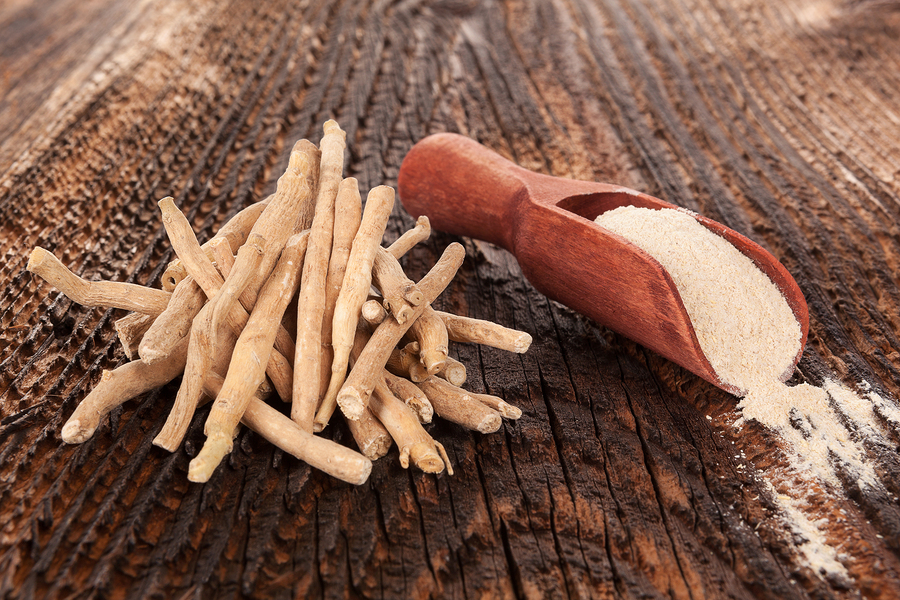For more than 4,000 years Ashwagandha has been a staple botanical treatment in Ayurvedic Medicine. Ashwagandha is known as an adaptogenic herb: one that helps the body adapt to physical and emotional stress. It’s also regarded as a strengthening tonic to support the immune system and promote healing during and after illness.
Though Ashwagandha (Withania somnifera) has potent effects on its own – including mild sedative and calming effects that can help with nervous tension and insomnia – it’s often used in conjunction with other herbs carefully selected for each individual. Botanical scientists and Ayurvedic practitioners believe the synergistic effects produced when other herbs are used in combination with Ashwagandha would not occur with a single herb. Research is examining these effects as well as the role Ashwagandha plays in decreasing inflammation and treating certain forms of dementia. Ashwagandha also has been used for some forms of arthritis, anxiety, fatigue, and depression. Various forms of ashwagandha (tincture, extract, tea, liquid capsules) are selected depending on the health concern to be treated.
Ashwagandha, a small, woody shrub with tiny garnet berries, is a member of the nightshade family of herbs. If there is an allergy to other nightshade plants, then Ashwagandha may not be suitable for you. Ashwagandha can interact with other herbs and prescription medication; it is important to consult with a holistic physician who has training in botanical pharmacology before taking this herb.
Resources
Johnson, R.L., S. Foster, Low Dog, T. and Kiefer, D. National Geographic Guide to Medicinal Herbs: The World’s Most Effective Healing Plants. (2012) Washington, D.C.: National Geographic.
Chandrasekhar, K et al. “A prospective, randomized double-blind, placebo-controlled study of safety and efficacy of a high-concentration full-spectrum extract of ashwagandha root in reducing stress and anxiety in adults.” Indian journal of psychological medicine vol. 34,3 (2012): 255-62. doi:10.4103/0253-7176.106022 https://www.ncbi.nlm.nih.gov/pmc/articles/PMC3573577/
Singh, Narendra et al. “An overview on ashwagandha: a Rasayana (rejuvenator) of Ayurveda.” African journal of traditional, complementary, and alternative medicines : AJTCAM vol. 8,5 Suppl (2011): 208-13. doi:10.4314/ajtcam.v8i5S.9 https://www.ncbi.nlm.nih.gov/pmc/articles/PMC3252722/
Pratte, Morgan A et al. “An alternative treatment for anxiety: a systematic review of human trial results reported for the Ayurvedic herb ashwagandha (Withania somnifera).” Journal of alternative and complementary medicine (New York, N.Y.) vol. 20,12 (2014): 901-8. doi:10.1089/acm.2014.0177 https://www.ncbi.nlm.nih.gov/pmc/articles/PMC4270108/
Duke, James. A. (2002). Handbook of Medicinal Herbs (2nd Ed). Boca Raton, FL: CRC Press.

